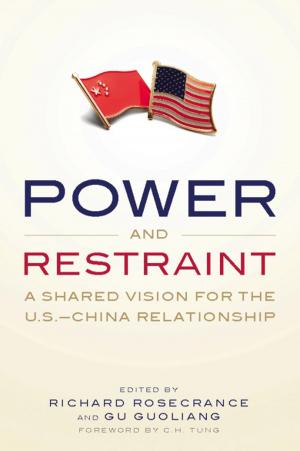We Believe the Children
A Moral Panic in the 1980s
Nonfiction, Health & Well Being, Psychology, Social Psychology, History, Americas, United States, 20th Century| Author: | Richard Beck | ISBN: | 9781610392884 |
| Publisher: | PublicAffairs | Publication: | August 4, 2015 |
| Imprint: | PublicAffairs | Language: | English |
| Author: | Richard Beck |
| ISBN: | 9781610392884 |
| Publisher: | PublicAffairs |
| Publication: | August 4, 2015 |
| Imprint: | PublicAffairs |
| Language: | English |
In the 1980s in California, New Jersey, and New York, Michigan, Massachusetts, and Florida, Tennessee, Texas, Ohio, and elsewhere, daycare workers were arrested, charged, tried, and convicted of committing horrible sexual crimes against the children they cared for. These crimes, prosecutors said, had gone undetected for years, and their brutality and sadism defied all imagining. What's more, the abusers had photographed and videotaped their victims, distributing the images through a sophisticated international network of child pornographers. More often than not, violent satanic cult worship had also played a central role, with children made to watch forced abortions in cemeteries and then eat hacked-off bits of the little corpses. In just over a decade, thousands of people in every part of the country were investigated as child sex abusers, and some one-hundred and fifty of them were sent to prison.
But, none of it happened. It was an epic decade-long outbreak of collective hysteria on a par with the Salem witch trials or the red scares of the 1950s.
Using extensive archival research conducted in Los Angeles, Miami, New York, and elsewhere, and drawing on dozens of interviews conducted with the hysteria's major figures, Richard Beck shows how a group of legislators, doctors, lawyers, and parents, all working with the best of intentions, set the stage for a judicial disaster. A number of opportunistic journalists helped to carry the story from state to state, and the silence of their colleagues, who should have known better, allowed it to keep spreading long after it became clear that the story was simply unsupported by evidence. Beck reveals how a small group of skeptics finally began working to slow the runaway train in the last half of the decade, and he explores the fates of those accused and convicted of these unbelievable crimes, the casualties of a culture war. It is this culture war that is the books pervasive subtext the conditions that made possible the demented frenzy of accusations were very specific, and at the root of them were competing visions of society and the things that threatened it most.
In the 1980s in California, New Jersey, and New York, Michigan, Massachusetts, and Florida, Tennessee, Texas, Ohio, and elsewhere, daycare workers were arrested, charged, tried, and convicted of committing horrible sexual crimes against the children they cared for. These crimes, prosecutors said, had gone undetected for years, and their brutality and sadism defied all imagining. What's more, the abusers had photographed and videotaped their victims, distributing the images through a sophisticated international network of child pornographers. More often than not, violent satanic cult worship had also played a central role, with children made to watch forced abortions in cemeteries and then eat hacked-off bits of the little corpses. In just over a decade, thousands of people in every part of the country were investigated as child sex abusers, and some one-hundred and fifty of them were sent to prison.
But, none of it happened. It was an epic decade-long outbreak of collective hysteria on a par with the Salem witch trials or the red scares of the 1950s.
Using extensive archival research conducted in Los Angeles, Miami, New York, and elsewhere, and drawing on dozens of interviews conducted with the hysteria's major figures, Richard Beck shows how a group of legislators, doctors, lawyers, and parents, all working with the best of intentions, set the stage for a judicial disaster. A number of opportunistic journalists helped to carry the story from state to state, and the silence of their colleagues, who should have known better, allowed it to keep spreading long after it became clear that the story was simply unsupported by evidence. Beck reveals how a small group of skeptics finally began working to slow the runaway train in the last half of the decade, and he explores the fates of those accused and convicted of these unbelievable crimes, the casualties of a culture war. It is this culture war that is the books pervasive subtext the conditions that made possible the demented frenzy of accusations were very specific, and at the root of them were competing visions of society and the things that threatened it most.















